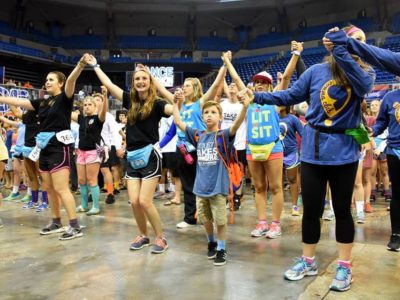Until the age of 21, my entire world was made up between Louisville and Lexington, Kentucky. I never lived more than an hour and a half away from my family, a 15-minute drive from my grocery store, hair salon and doctor. I’ve sat next to the same people in my college courses that I sat next to in middle school. My nuclear friend group consists of the same girls I graduated high school with. I had never known a larger social event than the Kentucky Derby…until I moved to Spain for a semester.
On paper, it sounded easy and fun: Spend a semester learning Spanish in the city of Granada. I thought my days would be filled with flamenco dancing, paella and walking along the history-rich cobblestone streets. But by the first 48 hours, I called my mom in tears, begging her to buy me a plane ticket home. Between the taxi drivers that didn’t understand me, not being able to communicate with my host mom and my classes introducing new grammar concepts faster than the speed of light, I felt lost and alone.
I had never faced any setbacks or obstacles because of my race, sexuality or economic class. But in Spain, I was an outsider due to one very big factor: my language. For the first time in my life, I was in the minority, and I didn’t like it.
My first experience in a Spanish hospital is one I will never forget. While any hospital experience isn’t usually great, the inability to communicate with my doctor made this that much harder. A simple bad chest cold turned into a huge ordeal. Unknown Spanish words flew over my head. Thanks to that and being hooked up to IVs, wheeled to X-Rays and given 20 minute increments of breathing therapy, I felt alone and scared. I didn’t know what was happening or, even worse, what was wrong with me. The only person I had to depend on was the hospital’s English translator, a woman who had spent three months living in England and could only understand me when I talked very slowly and over enunciated every T and R in my words.
I had never felt so helpless in my entire life. My translator, also an administrator for the hospital, would leave periodically to finish paperwork and tend to other patient’s complaints. When she was gone, I felt like a person treading water out in the middle of the ocean. I walked into the wrong examination rooms and doctors became increasingly frustrated with me. At one point, a doctor went in to the waiting room of the ER to ask a 14-year-old girl taking an English class to help translate. All she could say was, “Hi, my name is Maria. How are you?”
In a perfect ending, I’d go on to say how I left the hospital that day determined to learn Spanish, how I became fluent. I’d list all the wonderful career and personal benefits that come from knowing two languages. But that’s not how it ends. I did not learn Spanish, but I did learn far greater lessons. I learned what it was like to step outside of my comfort zone and how to keep moving forward, even when the challenges of a new culture and language seemed overwhelming. Going to Spain taught me that while change is scary, it can be a good thing.
Living somewhere where English isn’t the primary language has been one of the hardest and most rewarding experiences of my life. Language barriers and misunderstandings caused me to fall flat on my face numerous times a day. But in Spain, I had no choice but to get back up and try again. I learned to laugh during the times I miscommunicated an idea or said something wrong. I celebrated the times where a Spanish speaker understood me, instead of focusing on the times when they did not.
Beyond that, I had to learn to see failure not in opposition to success, but as a learning opportunity. And even though I can place my Qudoba order in Spanish now, I also learned about myself in ways I never could have imagined.



















